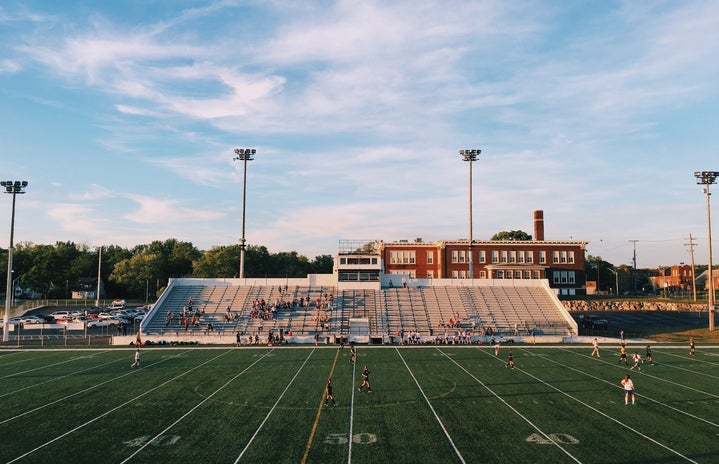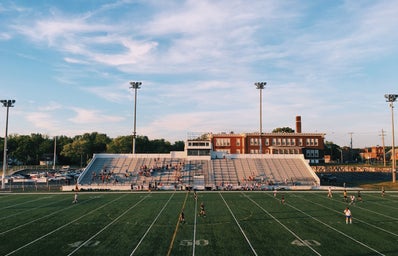Like many other athletes, I know what it’s like to get a concussion. That moment when your head makes contact with an opponent’s head or sometimes worse, the ground. Everything goes blank for a moment, eyes closed, head in your hands, just in pain. The coming to, the tears, the concussion check. Concussions suck, to be completely honest. In the following days, you feel bad. Not only can you not participate in the sport that you have dedicated your time and energy to, you may have a persistent headache, sensitivity to light and color, nausea, dizziness, or a general haze. Concussions can completely alter the brain function of otherwise healthy athletes. Students with concussions can begin to perform poorly in school, their memory may start to fade, they may become irritable, depressed or anxious, and slowly their lives are changed by brain trauma. In response to this, organizations such as the Headway Foundation have organized a global Concussion Awareness Week to promote safe sports culture and provide resources for athletes.
Concussion Awareness Week focuses on advocacy for a change in sport culture, starting with advocating for mental toughness among athletes in the wake of their concussions. There is a very unhealthy culture within sports to “Just push through it” when athletes get injured. Some coaches say that “Well I continued playing when I got injured, so I think you can play too.” This unhealthy pressure to continue to perform, even when it is possible an athlete has an injury that can affect if not end sport performance, can lead to longer recovery times and the risk of further damage. The Headway Foundation encourages young athletes to immediately report their concussions and put their physical health ahead of their sport. They also encourage healthy team dynamics in which teammates help concussed teammates receive the support they need to heal. This also applies to game dynamics, and the Headway Foundation wants to promote playing sports smartly by avoiding illegal hits to the head and neck that could cause concussions (Headway Foundation, 2022).
Concussions are dangerous, it’s as simple as that, and we should advocate for safer play among athletes to eliminate the chance that they face a life altering injury. Up to 3.8 million recreation and sports related concussions occur every year, with the highest risk sport being men’s football, followed by women’ soccer and basketball (Moreno, 2012). With developing brains, concussions can put the education, livelihoods, mental state, and physical state of athletes at risk through traumatic brain injury. It can change their moods, their personalities and ability to perform. This is not the future we want for these young people. Additionally, this is not a reality we want current adult athletes to have to endure. They deserve to play the sports they love, without the fear of a concussion. This is why partnering with organizations such as the Headway Foundation are so vital to preserving the minds of youth and adult athletes. Advocating for safer sports, more accountability, less unhealthy pressure to perform, and supportive loved ones can create a better future for athletes.
References:
Headway Foundation. (2022) Awareness.
Moreno, M.A. (2012) Youth Sports and Concussion Risk. Archives of Pediatric and Adolescent Medicine 166(4): 396


